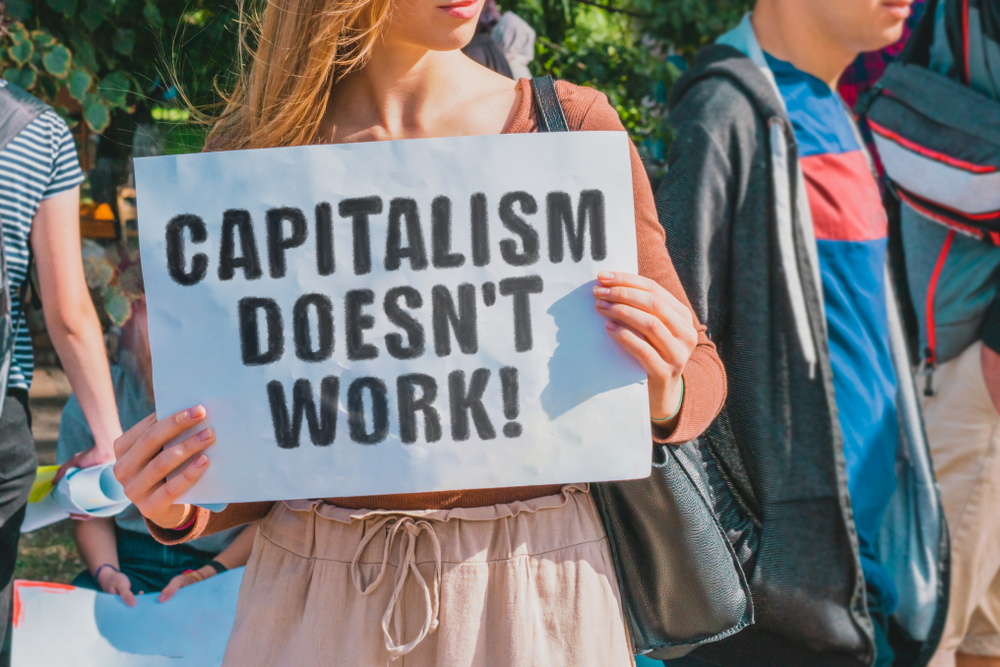Does the Caribbean have a welfare state problem? Depending on whom you ask you’ll get a different answer. Indeed, some believe a welfare state is part and parcel of a developing state’s responsibility and even expected of any decent government. Other’s see it as wasteful, dependency creating and detrimental to long term economic freedom. Indeed, the ease with which ‘handouts’ may guarantee political mileage may make this a troubling conversation for any nation. How can the Caribbean properly modernize its socioeconomic model to still assist the vulnerable while not falling prey to corruption, wastage, and paralyzed development?
Learning From The Mistakes of Others
When you read about the economy of nations like India and China in contemporary times you tend to hear more about their fast growth and breakthrough in Western markets. However, it wasn’t always like this with the decades following WW2 seeing negligible, if any yearly growth for these economies. In the case of India it attempted to recreate the ‘best of capitalism and socialism’ while courting both NATO and the USSR only to end up with the less desirable end results of both doctrines. To a degree, the Caribbean’s Cold War influenced late 20th century economics continue to similarly haunt it to this day.

To put things into perspective, up until the 90’s India’s economy was characterized by heavy import taxes, strict government regulation on industries, nationalization initiatives and a heavy reliance on state assistance for any working class or small business owner. The Caribbean region attempted a ‘mixed’ model as well wherein private businesses and investors were allowed to operate however ‘centrally planned’ policies which made imports expensive as well as nationalization of key industries also defined the landscape. The rationale was that the revenue from these actions would be directly reinvested into ‘paternalistic’ government policies aimed at providing free housing, healthcare, education, assistance and state employment. The downside to this was that any economic upheaval meant the state was doubly crippled, especially in a landscape of economic monoculture. This reality held true for China, India and even Israel until their economic reforms and ‘opening up of their markets as highlighted in a piece by the National Review.
A Continuation of Dependency
It is simply politically expedient to have a dependent population whether a colonial or independent authority is in charge or not. This, according to some, is the reason why the Caribbean clings heavily to a Marxist model of thought even in an era where Marxist stalwarts like Cuba are gradually being forced to reform and ‘open up’ a bit more. Indeed, to this day the IMF is seen as a boogeyman and this thinking is continually encouraged by political forces. Indeed, some of the basic demands that come with IMF loans are usually privatization, opening up of markets and reduction in state spending. This can be a nightmare scenario both for the dependent and political forces that maintain loyalty through such policies.

It’s not uncommon for the occasional scandal to emerge wherein ‘loyalists’ and other interest groups are accused of receiving preferential or recently created posts in state controlled firms or organizations. In fact, it can even be argued that crime is linked to this reliance on welfare and socialist leaning policy. A report from The University of South Wales in conjunction with the UK’s Constabulary services notes the intricate and far reaching linkages between gang crime and state actors in Trinidad and Tobago for example. Another piece by Global Voices further takes aim at how criminal elements allegedly achieve funding through taxpayer funded state contracts and welfare. Dismantling such disturbing systems won’t be easy and will likely place a target on the backs of anyone actively seeking reform in the Caribbean.
Economic Empowerment As A Policy
Should the state simply abandon all forms of welfare and assistance then? The answer is an obvious no however these initiatives must be streamlined and only be made available where needed and required. Instead the state must find the political will and pursue a policy of economic empowerment. That is, crafting policy in such a way to make business easier to conduct, the cost of living easier to manage and the individual more skilled and able to easily provide for and sustain themselves without a crutch. Put simply, the state’s welfare should be remade from one of giving a man a fish to that of teaching every man to fish.
A Brave New World
The post COVID landscape will further factor into if many Caribbean nations can even afford to be welfare states to begin with. It is imperative that these states adapt their economies to deal with the rippling effects of the pandemic. Many tourist spots globally have opened back with varying requirements. For example, in Asia some locales require vaccination for tourists while others mandate quarantine and a few others have very little requirements at all. This is a precarious matter to juggle as some, out of fear, will put off their travel plans entirely while others, based on their own personal leanings, will gravitate towards destinations with vastly contrasting regulations.

A December 2020 study from the UN’s Economic Commission for Latin America and The Caribbean notes that tourist services account for half of the region’s service exports. Therefore, it is vital that private and public actors do the necessary delving to gauge their own consumers and craft policy. Some might consider diversifying into other services as well such as finances and banking given the ever tumultuous and volatile state of the tourism market.
In short, whether the Caribbean region is dominated by welfare states or not is, at this point, not as pressing a matter as whether they can afford to be in the first place. Major reforms are both necessary and inevitable if we are to maintain development and growth in the foreseeable future. Small economies cannot afford the luxury of being inflexible.



















